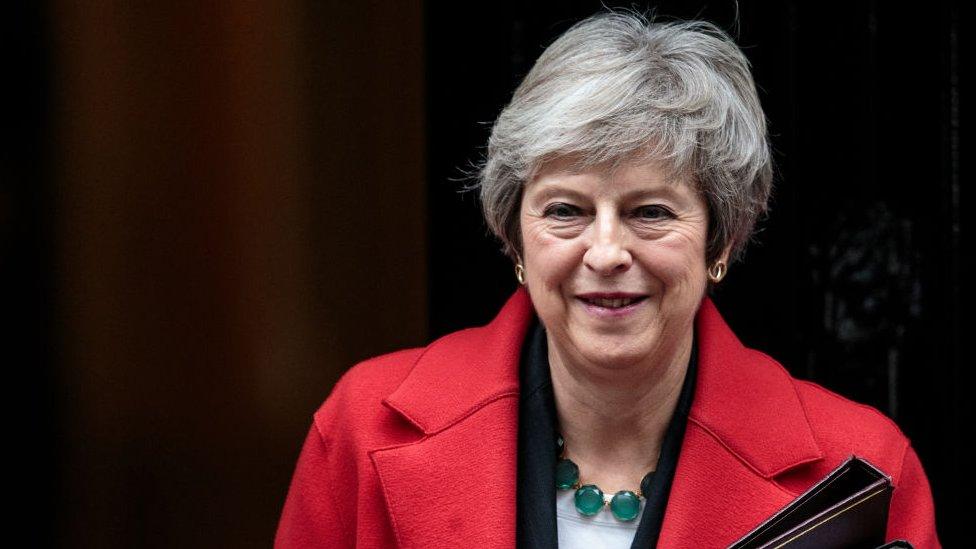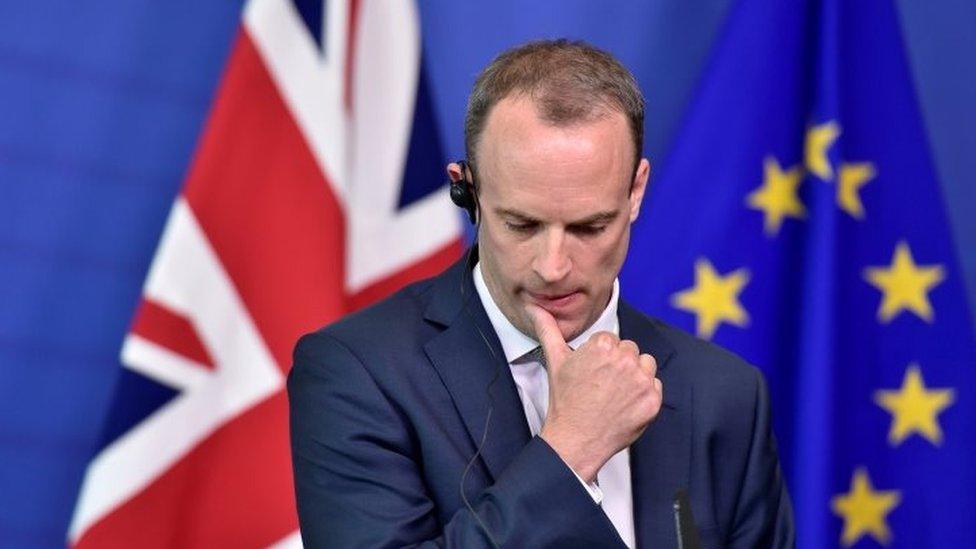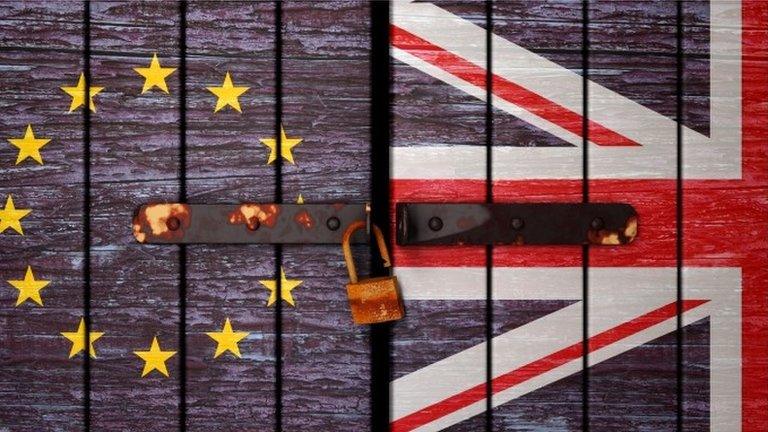Brexit: What do Theresa May’s Tory enemies object to in the deal?
- Published

Theresa May's draft Brexit agreement has left some of her fellow Conservative MPs seething. There's a broad range of objection, but these are some of their key complaints.
For the Brexit faithful, it all comes down to control. Esther McVey, one of two senior members of the UK government to quit because of the proposed deal, did so because it fails to "regain control" from Brussels.
"Repeatedly you have said that we must regain control of our money, our borders and our laws and develop our own independent trade policy... This deal fails to do this," she wrote, external.
Her claim directly contrasts with what Theresa May said on Thursday: "This deal... brings back control of our money, laws and borders, ends free movement, protects jobs, security and our Union."
So what exactly are the objections and how does the government defend them?
Money
This year the UK's contribution to the EU budget is forecast to be a net £10.8bn. It has agreed to continue paying similar amounts until the end of the "transition period" - the time after Brexit Day on 29 March 2019 that both sides have set aside to agree a trade deal.
The payments will form part of the "divorce settlement" - expected to be at least £39bn - which the UK has agreed to pay the EU to cover its financial obligations for leaving.
The transition period is due to end on the last day of December 2020, but it may not. The draft agreement leaves the option of it being extended - if a trade deal isn't sorted out. If the transition is extended, it can only happen once and for a limited period.
This means a previous commitment by Theresa May that any extension would be for a "matter of months", cannot be guaranteed, especially as the decision to extend the transition has to be taken jointly by the EU and the UK.
So if the transition is extended, there will have to be additional UK payments to the EU which will be agreed separately.
However, supporters of the draft deal say once the UK leaves the transition period, its big annual payments will end. This is why the prime minister and her supporters claim the agreement allows the UK to regain control of its money.
Confused by Brexit jargon? Reality Check unpacks the basics.
Borders
During the transition period, freedom of movement rules apply, meaning EU citizens will be free to live and work in the UK and vice versa.
Once the UK exits transition, it will be able to set its own rules on immigration.
This is why the prime minster claims the UK will be "taking back control" of its borders and that the country will be ending free movement.
But if the transition period continues, so EU citizens will be able to carry on moving to the UK.
Laws
The European Court of Justice (ECJ) is the gremlin here for many Brexit believers. It has the final say on disputes between people and governments on matters of EU law. Its opponents say the last word should always be with a UK court.
Mrs May agrees. Two years ago she declared: "We are not leaving [the EU] only to return to the jurisdiction of the European Court of Justice. That is not going to happen."
But during the transition, the UK will have to follow all EU rules and abide by ECJ rulings.
Opponents argue this leaves the UK as a rule taker and no longer a rule maker. And if the transition period is extended into a backstop, the ECJ's jurisdiction will also be extended.
But Mrs May's backers say the UK will be free of the ECJ once the transition is over.
Another objection, voiced by MP Mark Francois, is that under the agreement the UK has committed to keeping "equivalent standards" with the EU in employment, environmental and social policy. In effect, the UK "would continue to take EU law" says Mr Francois.
Furthermore, if the backstop is triggered then disputes about putting the agreement into practice will be settled by an arbitration panel, consisting of people nominated by both sides. That panel must refer any matter which concerns the interpretation of EU law to the ECJ
Independent trade policy
Once the UK exits transition, and assuming the backstop isn't triggered, it will be able to implement any agreed free trade deals it strikes with other countries.
If the transition period is extended, that is the backstop is introduced, free trade deals will have to wait.
And if the UK becomes a single customs territory, which is what would happen under the backstop, it won't be able to implement any deals on goods (but it will be able to do some deals it reaches on services).
Deciding when the backstop comes to an end, will not only be up to the UK. It will also have to be agreed with the EU. Ms McVey and likeminded enemies of the deal fear the UK could become "trapped" in this arrangement, limiting its ability to strike trade deals.


- Published15 November 2018

- Published11 December 2018
